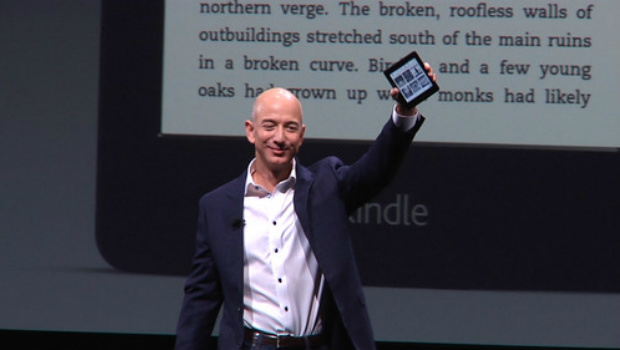 Amazon CEO Jeff Bezos’ spirited defence of his company in the wake of a New York Times expose was forthright, clear and shows exactly where he thinks the faults in his company lie. Unfortunately the faults he sees aren’t the ones Amazon is being pilloried for.
Amazon CEO Jeff Bezos’ spirited defence of his company in the wake of a New York Times expose was forthright, clear and shows exactly where he thinks the faults in his company lie. Unfortunately the faults he sees aren’t the ones Amazon is being pilloried for.
For those who haven’t read it (link here), a detailed report by Jodi Kantor and David Streitfeld talked to over 100 former and current employees at the e-commerce giant, many of whom painted a picture of a company run on a toxic ‘always on’ culture where 80-hour weeks are the norm and personal emergencies from miscarriages to cancer treatments taken as a sign of commitment.
The feature, which runs to 5,400 words, presented a sample of personal experiences positive and negative, and official statements from the $250 million e-commerce behemoth. At time of writing the piece has generated over 5,000 comments on the NYT website alone, not to mention the hundreds of comment pieces on other news sites, each one advocating for different responses from consumer boycotts to unionisation. Neither is feasible. If anything is to change Amazon’s ways it would be at the level of the workforce but organised labour is not part of the new economy, mobility is. In a buoyant jobs market why would anyone work for a company that claims to hire the best only to batter them into submission when there are plenty of nurturing career-friendly options. If you really are the best then you should be able to work for companies that are the best to work for. Simple, yes?
Horror show
Bezos’ quick-footed response has been not to discredit the NYT but to say that the horror stories are the exception and not a result of policy. “Even if it’s rare, our tolerance for any such lack of empathy needs to be zero,” he wrote in an e-mail to staff. “The article doesn’t describe the Amazon I know or the caring Amazonians I work with every day.”
Bezos – who is worth $49.5 billion – labelled the Amazon as described by Kantor and Streitfeld a “soulless, dystopian workplace” that he wouldn’t want to work in. Are the NYT and Bezos looking at the same company? Has the NYT been mislead by a group of malcontents who couldn’t stand the pace of working in a high-intensity corporate environment. Is Bezos that disconnected from his workforce that all he hears is good news from a management class of paranoid yes men?
The answer lies in Amazon’s reliance on its best asset: data.
From the purchases you make to the reviews you write to the length of time you spend on pages before making a purchasing decision, every interaction you have with Amazon’s store is analysed to the hilt so you can be presented with more accurate product suggestions with every visit. This is nothing special. Every website relies on user data now to tailor content in the pursuit of more hits with everything from headline writing to word count to the number of outbound links carefully quantified for maximum effect. Everything Amazon does is backed up by data making it a systems company par excellence. Reading between the lines of Bezos’ statement it’s not Amazon or its systems that are the problem, it’s the people using it wrong. However, Bezos should look at the how and why of employee appraisal is happening and its reliance on data that is subjective, unreliable and politically motivated to ‘manage out’ underperforming workers.
On the shelf
The continued reliance on stack ranking is something that goes to the heart of what’s wrong with Amazon. Made popular by GE in the 1980s, stack ranking works on the assumption that employees can be assessed along a bell curve with some workers labelled as top performers and others labelled poor performances who should be jettisoned. The problem with this managerial strategy is it wastes time finding fault with staff instead of upskilling them and creates a culture of mistrust where people desperately undercut each other to make sure they don’t land in the red zone of x% who will be let go. It doesn’t help that companies using the method routinely adjust the drop zone, creating a tense environment where gatekeeping and undercutting become the norm.
Despite its negative effect on morale and team building stack ranking has plenty of adherents in the tech sector. Intel, HP, IBM, Cisco and Dell still use it and Yahoo brought it in after banning teleworking. Microsoft, Adobe and Ford dropped it after years of brand stagnation. Microsoft’s new focus on productivity has an appraisal system to match, where employees receive feedback on more qualitative aspects of their work over raw output.
Bringing this back to Yahoo, Bezos is a systems man let down by a management doctrine that’s at least 20 years out of date. Human nature has corrupted the organisational culture and this needs addressing at an organisational level. Change the system and you may find a much more caring sharing and efficient Amazon in the near future.
The NYT has thrown a light on Amazon this week but it won’t be the last tech company to get the treatment.








Subscribers 0
Fans 0
Followers 0
Followers